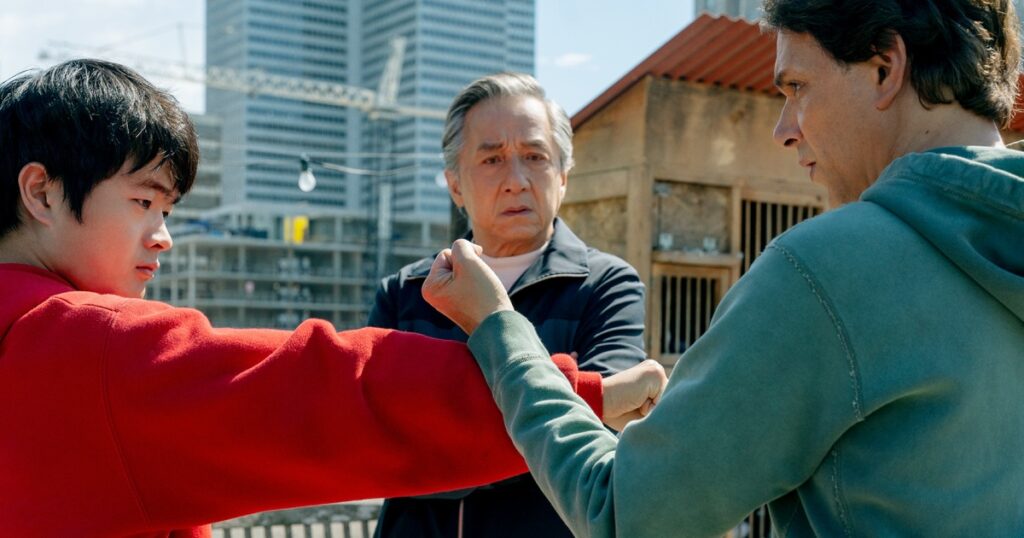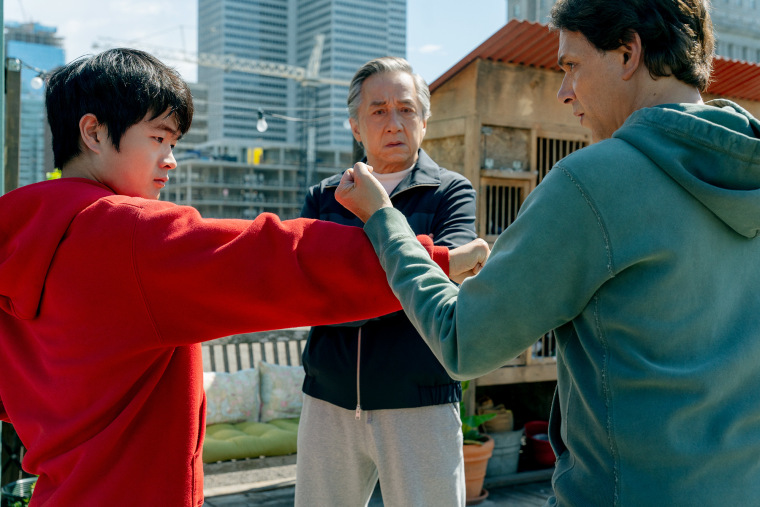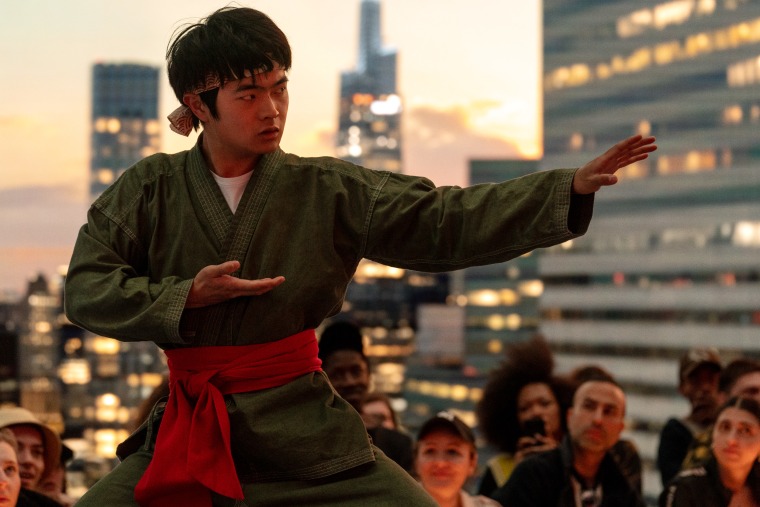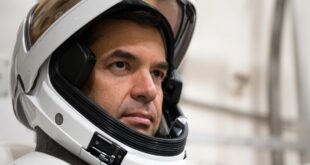
There won’t be any simulated roundhouse kicks from Jackie Chan in the new “Karate Kid” movie.
The legendary actor returns to the big screen as he reprises his role as the wise instructor, Mr. Han, in “Karate Kid: Legends,” in theaters Friday. And it draws on Chan’s legacy.
This meant choreographed fight scenes and, most importantly, a lack of CGI.
Chan, 71, emphasized the importance of authentic action sequences in martial arts movies.
“People definitely don’t like to see Jackie Chan with CGI, of course,” Chan told NBC News.
The movie features kung fu prodigy Li Fong entering the ultimate karate competition, guided by Mr. Han and the legendary Karate Kid, Daniel LaRusso. Mr. Han is a counterpart to the beloved Mr. Miyagi from the original 1984 movie.
“Karate Kid: Legends” director Jonathan Entwistle said he had a clear vision for the project and wanted it to feel like an early Jackie Chan movie.
Chan first played Mr. Han, a maintenance worker and kung fu master, in the 2010 remake of the original film.
The veteran actor said he’s happy to be in on the action regarding his stunts and admitted that it has been “easy” for him to adapt as he gets older because it’s all “muscle memory” for him.
Chan also said “Karate Kid: Legends” is somewhat of a full circle moment for Asian culture Mr. Han will be mentoring the first Asian American karate kid, portrayed by “American Born Chinese” star Ben Wang.

Chan expressed how proud and impressed he was by the young actor as he added a new dimension to the franchise.
“Before I met him, I was wondering, ‘What did he do right to get this part?’ There were so many audition tapes!” Chan said. “But when I actually saw him, I knew. His dedication and humbleness and just how much he put into work on this movie, I was definitely impressed.”
Pat Morita, who played the iconic Mr. Miyagi in the original “Karate Kid” movie in 1984, was the only Asian American cast member at the time. The lack of representation and some of the plot points have drawn criticism from fans and community over the years.
Despite an imperfect record on representation, Chan said he thinks the movies have helped make strides for cultural awareness.
The original “Karate Kid” movie became a cultural phenomenon in the 1980s, known for its underdog story and eventually helping popularize martial arts across the United States.
“It gave people a [new] way of looking at Asian culture, not just kung fu or karate, which are typical practices in Asian countries but that’s just [scratching the] surface,” Chan said. “What’s more important is for the audience to know more about Asian culture, or at least part of it.”

Chan’s career spans six decades, including memorable roles in “Rush Hour,” “Shanghai Noon” and “Police Story.” The actor became a household name in the United States in the 1990s and 2000s after he brought kung fu and death-defying stunts to the masses.
However, his journey to stardom wasn’t always smooth, as his 1980 Hollywood debut, “The Big Brawl,” didn’t quite hit.
“To be honest, I was frustrated when I was making ‘The Big Brawl,’ since it wasn’t very much of a success. That’s why I went back to Hong Kong then and continued making my own movies,” Chan said. “But it’s the first time for me to get to know Hollywood filmmaking. I learned a lot and tried to take the stuff I learned back to my crew so we can work better.”
He added: “I didn’t know anything back then, I was just a kid. It was all fresh to me. Although it wasn’t very much of a success, it taught me some lessons which I later on put into my own filmmaking.”
Chan believes that the upcoming movie captures the true essence of what made the original so popular.
“[This movie has] a lot of good and real action in it and you get to feel it only on the big screen. This is also a movie about love, affection, friends and family,” Chan said.
 Latest World Breaking News Online News Portal
Latest World Breaking News Online News Portal






